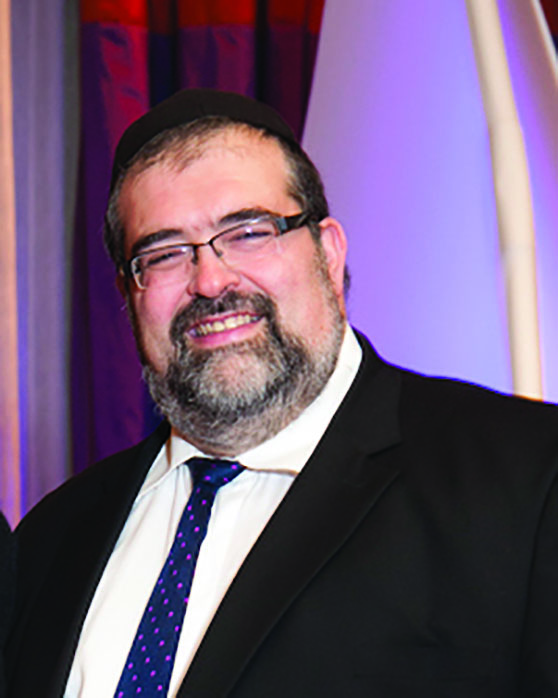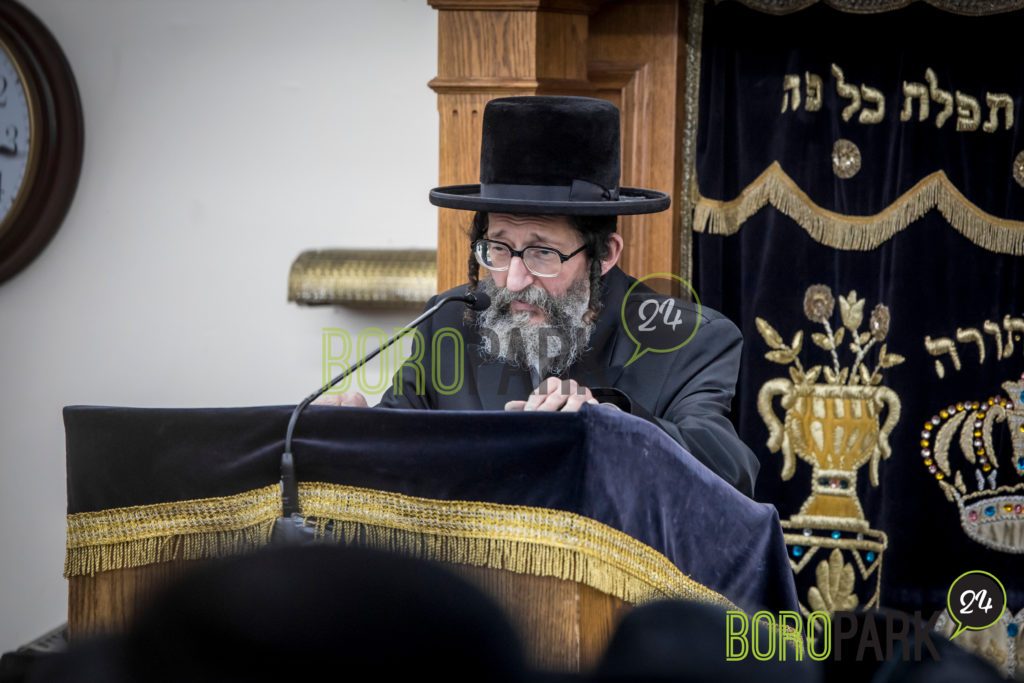Dallas Jewish Community Mourns Fallen Officers

News of the tragic shooting in Dallas was met with shock and horror by law-abiding citizens throughout the country — all the more so in the city that was the scene of the murder of five police officers and the wounding of nine more at a “Black Lives Matter” protest last Thursday.
With the Dallas Jewish community still reeling in the aftermath of the events, Hamodia spoke to its leaders and to other community members to hear their reactions and to learn about the community’s relationship with the officers of the Dallas Police Department.
Rabbi Aryeh Feigenbaum, Chief Rabbi of Congregation Ohr HaTorah, characterized the communal feeling as “very painful.”
Speaking on Sunday morning, he said that throughout the city citizens have been “banding together” to deal with what he characterized as a communal “sense of grief.”
On Friday evening, roughly 24 hours after the killings took place, congregants of Ohr HaTorah paused prior to Kabbalas Shabbos to recite Tehillim and to reflect on the incident. In an address to congregants, Rabbi Feigenbaum emphasized the community’s debt of gratitude to the Dallas police force and urged individuals to do what they could to express their empathy and support for local law enforcement officers.

Apart from the Jewish community’s strong relationship with the police, Rabbi Feigenbaum said that the incident came as a particular shock because the department has a reputation for a high degree of transparency and for maintaining positive ties with all of the city’s diverse racial and religious groups.
Since the murders, many members of the community have delivered food packages, notes and flowers to police stations as a way to offer condolences and sympathy. Several shuls have organized a campaign to raise funds that will be donated to the families of the fallen officers.
For some in the Jewish community, the tragedy seemed even closer to home.
One of the fallen officers, Patrick Zamarripa, only a few months ago led a team that organized security for a hachnasas sefer Torah to Congregation Ohev Shalom in northern Dallas. Dr. Lawrence Shafron, who donated the sefer Torah, recalled that Officer Zamarripa had gone “above and beyond,” blocking off an entire street to allow the procession to pass safely.
“We are all shocked and feel as if we have been blindsided. These things don’t happen here in Dallas,” Dr. Shafron said.
Michael Smith, another one of the officers murdered last Thursday, was stationed at a precinct in the immediate vicinity as Ohev Shalom, and not far from several other shuls in the neighborhood.
“They’re the greatest,” said Marcia Rhodes, praising the precinct’s attentiveness to the needs of the Jewish community. “We have a great relationship with them; they’re the ones that take care of any issues both at the shul and at the Torah Day School, which they also patrol.”
Since the shootings, Mrs. Rhodes has led Ohev Shalom’s efforts in raising funds for the officers’ widows. She said that many delivered personal notes to the precinct, and that children in the community have been encouraged to bring original drawings to place on Officer Smith’s patrol car, which had become an impromptu memorial to him.

Chaim Goldfeder, a Dallas caterer, has worked closely with the police department in his role as a community liaison. He was particularly emotional in expressing his “hurt” and “anger” over the murders.
“We grew up with such a sense of respect for officers. … In the past, people understood what the police represented and what they do for us,” he said. “These [police] are the people who protect my kids and all of us. It hurts a lot. If the police aren’t safe, what does that mean for us?”
Mr. Goldfeder said that the Dallas police force has always been especially “proactive” in “taking care of [the Jewish community].”
“They’re professional, they know what they’re doing, they always do a phenomenal job,” he added.
Rabbi Ben Zion Epstein, director of DATA — the Dallas Area Torah Association — said that the community is “horrified.”
“They have been there to protect us and to protect society and now they got attacked for doing their jobs,” Rabbi Epstein said. “Their people [the police] risk their lives day in and day out; it is just so sad.”
Rabbi Yaakov Rich of Dallas’s Congregation Toras Chaim said police have consistently been a reliable “partner” in protecting the community’s institutions, as well as being well regarded by the city in general. He expressed resentment in what he saw as tensions that are being stoked by outside parties.
“I personally have a very heavy heart for the tragic loss of life on the police force. They are our last line of defense. I am especially upset with our federal government and media who seem to be fanning the flames of a racial and cultural war, placing big dividers and pushing a dangerous agenda. Social media would better be called anti-social media, for all the harm it has brought to our society.”
This article appeared in print on page 4 of edition of Hamodia.
To Read The Full Story
Are you already a subscriber?
Click "Sign In" to log in!

Become a Web Subscriber
Click “Subscribe” below to begin the process of becoming a new subscriber.

Become a Print + Web Subscriber
Click “Subscribe” below to begin the process of becoming a new subscriber.

Renew Print + Web Subscription
Click “Renew Subscription” below to begin the process of renewing your subscription.












